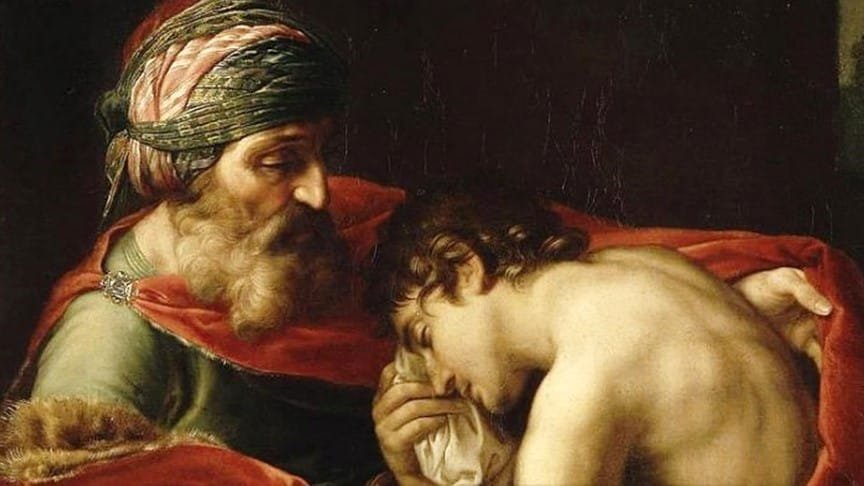Homily for the 24th Sunday C in Ordinary Time Year C. GOD IS RICH IN MERCY.
- In the 1st reading (Ex 32:7–11, 13–14), we see how God relented in punishing the Israelites for their disobedience and infidelity, demonstrating that His Love full of compassion and mercy goes beyond what is just and what we deserve.
- In the 2nd reading (1 Tm 1:12–17), St. Paul expresses his profound gratitude to Our Lord for the grace of conversion. He who “once a blasphemer and a persecutor and arrogant” “was mercifully treated, so that in me, as the foremost, Christ Jesus might display all his patience as an example for those who would come to believe in him for everlasting life” and confesses that God poured his abundant grace in His Son, Our Lord Jesus Christ in order to save humanity.
- And in today’s Gospel reading on the Parables of Mercy: that of the Lost Sheep, the Lost Coin and the Prodigal Son (Luke 15: 1-32), Jesus Himself reassures us of God’s immense love and mercy, always ready to forgive and rejoices on our return as shown by the fact that each parable ends with a refrain describing His sentiments at the conversion of the sinner.
- The Gospel teaches that no one is excluded from forgiveness and that sinners can become beloved children of God if they repent and are converted.
- No matter how great our sins may have been, there is no reason for us to despair, for God has his arms always open and ready to welcome and forgive us and a sinner can change and become a saint with the help of God’s grace. Remember St. Peter, St. Mary Magdalene, St. Paul, St. Augustine, St. Francis, St. Ignatius,….?
- All we need to do is be humble and contrite and return to the Father’s house through the sacrament of Confession.
A Blessed Sunday and week ahead to you and your loved ones! Fr. Rolly Arjonillo, priest of Opus Dei.
Stay updated: subscribe by email for free TO OUR NEW WEBSITE www.catholicsstrivingforholiness.org (PUT YOUR EMAIL IN THE SUBSCRIBE WIDGET).
We are also in www.fb.com/Catholicsstrivingforholiness. Kindly help more people in their Christian life by liking our page and inviting your family, friends and relatives to do so as well. Thanks in advance and God bless you and your loved ones! Fr. Rolly Arjonillo
AUDIO SOURCE:
“O Bone Iesu” in Catholic Gregorian Chants uploaded by Sarah Simon in archive.org
VIDEO PHOTO SOURCES:
Pompeo Batoni, The Return of the Prodigal Son
Nathan Green, The Good Shepherd (2 pictures) which can be ordered and bought at different sizes and editions in https://www.nathangreene.com (All rights belong to Hart Classics Edition: this picture was used only for didactic/educational purposes with advertising benefits for the painter as well.)
Lost Coin in https://www.ucg.org/files/image/article/lessons-from-the-parables-the-parable-of-the-lost-coin-seeking-lost-people_1.jpg
Bartolomé Esteban Murillo, El Retorno del Hijo Pródigo
Bartolomé Esteban Murillo, The Conversión de San Pablo, Museo Nacional del Prado (Madrid, Spain)
Pope Francis: L’Osservatore Romano
Guercino, Return of the Prodigal Son (Institution:Diocesan Museum in Włocławek) in wikimedia.org
